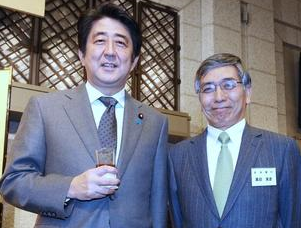There is plenty of noise in Japanese media about the potential for an early election
- I posted first thing Monday: Japan press: "Abe set to call October election"
But,
- What if there is?
- What if Abe wins (will he?)
- What does it mean for economic policy
- What does it mean for the BOJ and monetary policy?
Via Capital economics, some thoughts on these questions (and more). I've summarised:
- Opposition in disarray
- Support for the ruling coalition rebounding
- Government may well retain its two-thirds majority in the Lower House
- Chances of another delay in the sales tax hike would decrease
- Likelihood of monetary policy remaining ultra-loose for a long time would rise
- Matters little for the outlook for structural reform
More:
As things stand, the government is well-placed to retain its two-thirds majority in the Lower House
This could have two implications for economic policy
- For a start, the sales tax is scheduled to rise from 8% to 10% in October 2019 ... if elections are held next month, the sales tax hike would take place in the middle of the Lower House's next four-year term, making a delay less likely
- If PM Abe receives a renewed mandate, there is little question that he'll be in office next year when the successors to Bank of Japan Governor Kuroda as well as his two deputies are due to be appointed. While it is unclear whether Mr Abe would reappoint Mr Kuroda, it seems likely that he would choose a BoJ Governor who would continue with large-scale monetary easing
By contrast, we don't think that the re-election of Mr Abe would provide renewed impetus for structural reform. After all, momentum to tackle regulatory hurdles has started to dwindle long before the decline in the government's popularity earlier this year
--
I've been wondering out loud if an election, which Abe wins, is the catalyst for a new policy at the Bank of Japan lowering its inflation target. The Japanese economy has rebounded, but the BOJ is stuck on it ultra loose path due to its infalation goal, which looks as far away as ever. Wqtering down this goal would give the BOJ more policy flexibility.
ps. its 80tln JGB buying target is irrelevant (and being ignored in the Bank) under YCC. (Its still there as policy but that will be the first thing to go. (IMO ... as I've been gobbing off about for months now))

How much longer for this dynamic duo?



